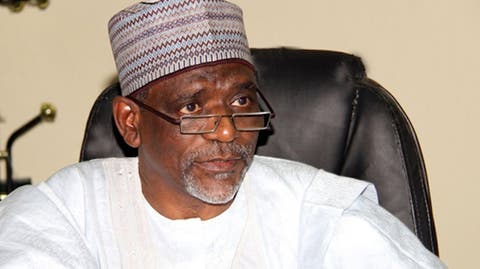The Federal Government has released guidelines ahead of the planned resumption of schools at every level in the country but failed to disclose the dates.
The guidelines outlined actions, measures and requirements needed for the safe reopening of schools after the COVID-19 pandemic.
According to the guidelines released by the Federal Ministry of Education in Abuja on Monday, the safe distancing measures in the new guidelines required that in schools and other learning facilities, learners should be supported to stay two meters apart.
The guidelines which was signed by the Minister of Education, Mallam Adamu Adamu and Minister of State (Education), Hon. Chukwuemeka Nwajiuba was developed in collaboration with the Federal Ministry of Environment, Federal Ministry of Health and health safety experts in the country.
Read Also : The Bitter Truth About the Covid-19 politics in Nigeria
The document reads, “However, there are exceptions where the two-meter rule cannot be reasonably applied and other risk mitigation strategies may be adopted. Examples include early years, younger primary school children, and those with additional needs.
“In these circumstances, risk assessments must be undertaken with the best interests of the learners, teachers, and other education personnel in mind. The scenarios require organizing learners and children into small groups with consistent membership and compliance with the risk mitigation strategies. The membership of these groups should not change unless the NCDC public health guideline suggests otherwise.”
With the release of the document, the government would conduct a rapid assessment and determine funding requirement for upgrading infrastructure and facilities (such as classrooms, furniture, Water, Sanitation and Hygiene-WASH and ICT facilities) to meet and sustain prescribed safe school reopening requirements.
The government said it was time for it to plan and address the eventual safe reopening of schools and learning facilities.
THE PUNCH reported that schools and all learning facilities were closed due to Coronavirus pandemic in order to safeguard the health and general wellbeing of children, youths, teachers and educational personnel.
The guidelines included a review of existing policies, practices, and risk mitigation strategies in the use of schools for other purposes, such as distance learn-ing centres, temporary shelters, isolation, quarantine and treatment centres, markets, voting centres, among others.
COVID – 19 pandemic poses an enormous risk to the health and safety of learners, teachers, parents, school administrators, education practitioners, and the wider community…More than 1.5 billion children and young people globally have been affected by school and university closures.
“As a responsible government, it is also our duty to provide comprehensive guidelines for a safe and hitch-free reopening of schools and learning facilities. We do so knowing that the health, safety, and security of learners, teachers, education personnel, and families are priorities”, it stressed.
The guidelines dealt extensively on equitable plans for school reopening and operations, focusing on attendance, social distancing, hygiene, cleaning, and non-pharmaceutical interventions for safe and healthy school activities and programmes.
Read Also : Kanu Nwankwo leads awareness on COVID-19 realities (pictures)
Adamu explained that the need to develop the guidelines became imperative, “given that COVID – 19 may be with us for a while.”
He said the guidelines also highlight the urgent need to maintain and improve upon distance-learning programs.
The Minister said, “Our aim is to identify and strengthen programmes that will guarantee the recovery of learning gaps resulting from the pandemic.
The guidelines were drafted in close coordination with health, environmental, education, and school safety experts who were tasked with the responsibility of charting a pathway for safely reopening our schools and learning facilities for quality teaching and learning.”
The approach, according to him, ensured that stakeholders provided regular feedback throughout the process.
Adamu expressed gratitude to the Presidential Taskforce on COVID – 19, FMoH, Nigeria Centre for Disease Control and the Education in Emergencies Working Group in Nigeria for their support and contribution in the development of the guidelines.

